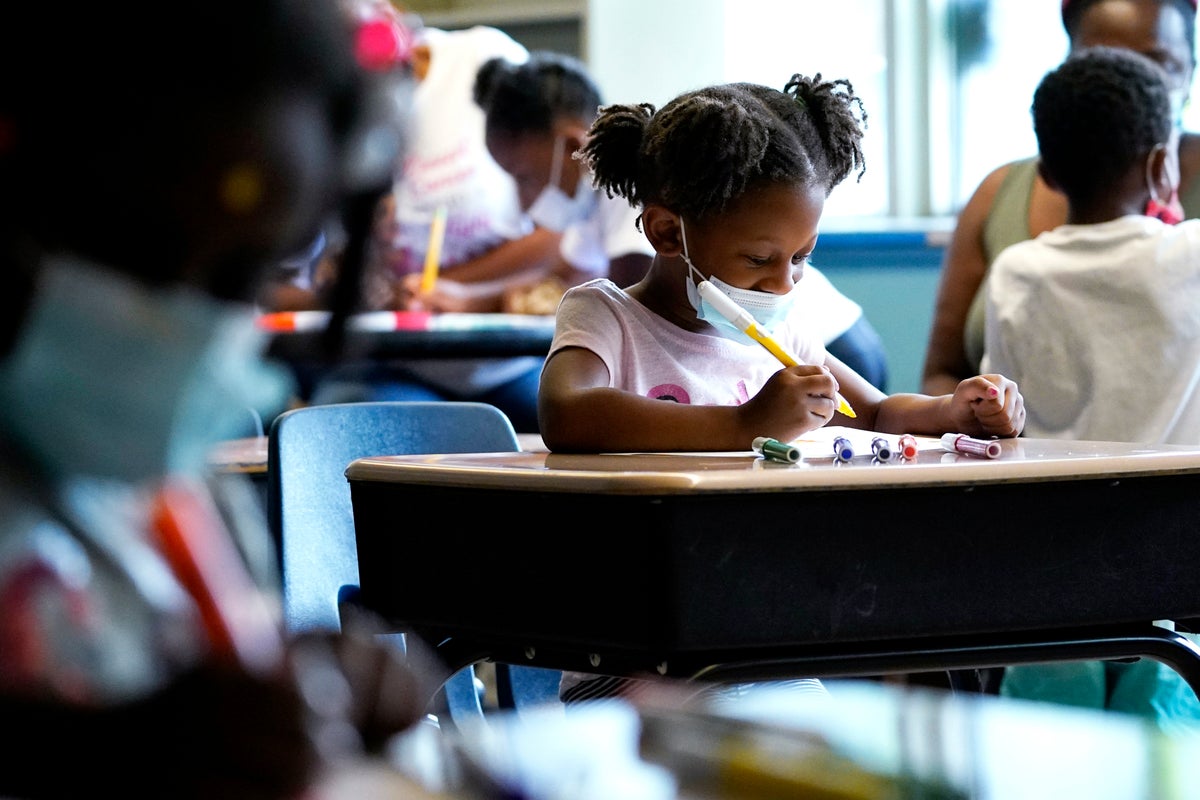
EDITORS/NEWS DIRECTORS:
In some of America's big cities, there are growing amounts of schools with small numbers of kids.
On a per-student basis, these schools can be much more expensive to operate. For now, the spigot of federal COVID-19 relief money is helping to subsidize these schools. But difficult decisions will need to be made before long in many communities regarding the future of these schools.
Fora story that published Monday, Chalkbeat and The Associated Press analyzed enrollment and budget data for these small schools in the largest U.S. school systems.
Here are some tips for reporting on how small schools in your area are being affected by pandemic-era enrollment trends.
SOME BACKGROUND
Public school systems across the U.S. shed large numbers of students as families relocated amid the pandemic and others, frustrated with policies on in-person learning, sought alternatives such as homeschooling and private schools. In many places school rosters had been shrinking well before COVID-19 hit due to long-term demographic trends.
Widespread school closures are not expected in the near term. School systems around the country remain flush with millions of dollars of pandemic aid, which has allowed them to prioritize stability keep schools open despite dwindling enrollments. But districts must budget the relief money by September 2024, and some experts and superintendents are forecasting painful cuts once it dries up.
THE DATA
Enrollment data gathered from the five of the biggest U.S. school systems — New York City, Chicago, Los Angeles, Clark County, Nevada, and Miami-Dade, in Florida — is available in this spreadsheet.
It includes the numbers of schools in each of those systems that had fewer than 300 students, 250 students and 200 students in each of the past several academic years.
Questions about the data included on this spreadsheet can be addressed to Chalkbeat data editor Thomas Wilburn at twilburn@chalkbeat.org.
STORY ANGLES
What schools in your area have seen enrollment drop the most since the start of the pandemic? If it's not on school system websites, data on enrollment at individual schools should be available upon request. Having this information in hand opens several opportunities for reporting.
— How are budgets at these schools affected by the dwindling numbers of students? Are they offering fewer clubs, sports and arts programs? How are districts adjusting their spending to keep these schools running despite the fixed costs that can make them much more expensive on a per-student basis? How do local school administrators see the role of COVID-19 relief in keeping these schools afloat?
— What do local officials and school system leaders anticipate will happen with these schools? In many states pandemic-era measures were put in place to protect schools from enrollment-related budget cuts, but those have started to expire. Are there places where officials are discussing the likelihood of school consolidations or closures?
— Who are the students and families who depend on these schools? In many districts, they are in predominantly Black and Latino neighborhoods hard hit by the pandemic. How do they feel about the possibility of further disruptions due to the enrollment challenges?
— What efforts are being made by these schools to bring students back? Are schools and local communities hopeful that enrollment will rebound at these schools as we emerge from the pandemic?







